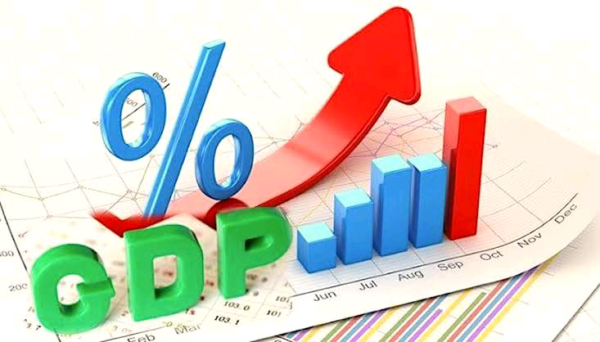365NEWS gathered that Federal Government has said that closing gender gaps in Nigeria has the potential to add 15 trillion Naira to the country’s Gross Domestic Product (GDP) annually by 2025.
Women Affairs Minister, Hajiya Imaan Suleiman-Ibrahim disclosed this while delivering her Keynote message at the Triple Event: Joint Accountability Forum held at the UN House in Abuja.
She stated that women constitute 49% of the population and account for 41% of Small and Medium-scale Enterprise, SME, owners, yet their representation in senior leadership was just 22%, with only 3.6% holding seats in parliament noting that these disparities represent untapped potentials that if harnessed, could drive the nation’s development forward.
“As we all know, beyond the moral imperative to act, there is a compelling practical argument for addressing GBV and promoting gender equality. Studies have shown that countries with higher levels of gender equality experience faster economic growth, improved governance, and more stable societies. For Nigeria, closing gender gaps has the potential to add fifteen trillion Naira to our GDP annually by 2025.
“Women constitute 49% of our population and account for 41% of small and medium-scale enterprise (SME) owners, yet their representation in senior leadership is just 22%, with only 3.6% holding seats in parliament. These disparities represent untapped potentials that if harnessed, could drive our nation’s development forward,” she explained.
The Minister said that the cost of not taking action was significant as globally, the economic cost of gender-based violence was estimated at $1.5 trillion annually.
She said that in Nigeria, this violence not only inflicts profound human suffering but also imposes substantial public health and productivity costs stressing that it was clear that investing in the prevention of GBV and the promotion of gender equality was not just an ethical necessity; it was an economic imperative.
She said that gender equality was not just a goal, it was the foundation for a more just, inclusive, and prosperous society therefore, inviting all critical stakeholders; government leaders, international organizations, the private sector, civil society, individuals, and other well-meaning Nigerians to team up with the Ministry in scaling up interventions at all levels.
She lamented that rural women continue to face limited access to education and economic resources as healthcare services remain inadequate in conflict-affected regions, and societal discrimination and harmful practices endure.
She said, “To overcome the obstacles, we must take decisive and strategic action. Strengthening our institutions is critical, ensuring that the policies we create translate into tangible outcomes for women and children. Enhanced coordination among stakeholders, government agencies, civil society organisations, and international partners will foster the synergy needed to achieve lasting change.”
The Women Minister disclosed that under the Renewed Hope Agenda, the Ministry has outlined specific priorities to address challenges affecting women saying that these include the promotion of women’s political participation and leadership, with efforts to increase representation in decision-making roles; enhancing educational and economic opportunities for women, aimed at building a foundation for equality and gender justice; addressing gender-based violence and harmful practices, recognising the urgent need for protection and support, as well as advancing women’s health and well-being, particularly in areas of maternal and reproductive health.
Furthermore, she said, “Data remains a vital tool in our fight for gender equality. Addressing gaps in gender-disaggregated data will allow us to design and implement evidence-based interventions.
“Equally important is the effective allocation of resources to programmes that make the greatest impact, particularly in education, healthcare, and economic empowerment.
“We will also pursue the establishment of a National Protection Centre for Women and Children, providing legal aid, shelter, and psychosocial support. Investments in renewable energy and the green economy to create sustainable livelihoods for women, while targeted interventions will address the needs of Nigeria’s 10.5 million out-of-school children, 60% of whom are girls.
“Additionally, working with the State Governments, we are scaling up the Nigeria for Women Project, which has already empowered 400,000 rural women through financial support of over ₦19 billion.
“Expanding the number of Sexual Assault Referral Centres, Special Courts for Children, and reducing maternal mortality currently at 512 deaths per 100,000 live births remain key priorities in our efforts to ensure that women and children can thrive in safety and health.
“As we commemorate these 16 Days of Activism, we must renew our commitment to a Nigeria where every woman and child, including men and boys can live free from fear and violence, empowered to realize their full potential. Let us make this moment a turning point, and by the time we gather next year, let our progress be evident, our impact measurable, and our resolve unshaken.”
















